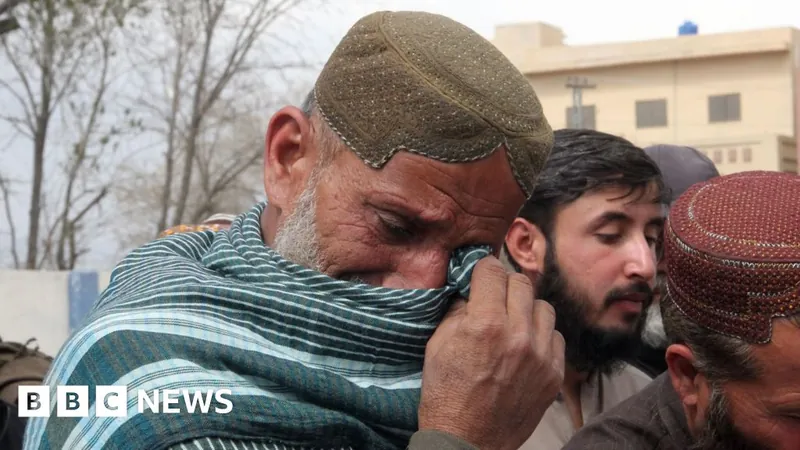
A Harrowing Tale of a Train Hijacking in Pakistan: What Really Happened
2025-03-13
Author: Ying
Introduction
In a shocking incident that unfolded in the remote Bolan Pass region of Balochistan, Pakistan, the Jaffar Express train was hijacked by militants, leading to a harrowing 30-hour standoff that escalated into violence and tragedy.
The Incident
On a seemingly ordinary Tuesday, Mehboob Hussain was aboard the train with approximately 440 other passengers when the disaster struck. The tranquility of their journey from Quetta to Peshawar was shattered as militants detonated explosives on the tracks, halting the train and initiating a brutal attack. Gunfire erupted, terrorizing passengers as armed men stormed the carriages.
Claim of Responsibility
The Balochistan Liberation Army (BLA) claimed responsibility for this horrifying siege, threatening severe consequences for the remaining hostages unless their demands regarding the release of political prisoners were met within 48 hours. This group has long been labeled a terrorist organization by numerous countries and has been involved in an insurgency against the Pakistani government, seeking independence for Balochistan – a region rich in natural resources yet historically neglected.
Eyewitness Accounts
Eyewitness accounts reveal the chaos inside the train. As gunshots rang out, passengers held their breath, fearing for their lives. A railway police officer, present during the attack, described how he and his colleagues attempted to fend off a superior number of militants until their ammunition ran out. With a tactical disadvantage and overwhelmed, the officers witnessed the militants moving in, separating hostages according to ethnicity, and carrying out executions of those deemed unworthy of release.
Escape and Rescue
Amidst the turmoil, some vulnerable passengers, including women, children, and the elderly, were allowed to leave the train unharmed. Among them was Noor Muhammad, who managed to escape with his wife after being forcibly removed from the carriage. Enduring a treacherous four-hour trek through the wilderness, they finally reached a railway station and found safety thanks to military personnel.
Violence and Aftermath
As night fell, violence erupted again as some hostages attempted to flee. Gruesome scenes unfolded when militants opened fire, killing several passengers before the arrival of paramilitary forces. The timing of the rescue operation coincided with the early morning prayers, allowing many, including a police officer and several passengers, to break free.
Conclusion
Despite the military’s efforts, the aftermath of the siege remains grim. While 300 passengers have been accounted for, there are still 140 unaccounted individuals, with fears that some may have been taken away by the militants. In a chilling revelation, dozens of coffins were seen waiting at Quetta railway station, perhaps indicating the fatalities that occurred during this relentless standoff.
As normalcy returns to the region, the survivors like Mr. Noor express immense gratitude for escaping with their lives. Nonetheless, the terror of that day continues to haunt them, highlighting the ongoing plight of a region embroiled in conflict and the desperate fight for autonomy.
This harrowing incident serves as a painful reminder of the fragile security situation in Pakistan's Balochistan province, underscoring the urgent need for dialogue and resolution in a landscape torn by violence and political strife.



 Brasil (PT)
Brasil (PT)
 Canada (EN)
Canada (EN)
 Chile (ES)
Chile (ES)
 Česko (CS)
Česko (CS)
 대한민국 (KO)
대한민국 (KO)
 España (ES)
España (ES)
 France (FR)
France (FR)
 Hong Kong (EN)
Hong Kong (EN)
 Italia (IT)
Italia (IT)
 日本 (JA)
日本 (JA)
 Magyarország (HU)
Magyarország (HU)
 Norge (NO)
Norge (NO)
 Polska (PL)
Polska (PL)
 Schweiz (DE)
Schweiz (DE)
 Singapore (EN)
Singapore (EN)
 Sverige (SV)
Sverige (SV)
 Suomi (FI)
Suomi (FI)
 Türkiye (TR)
Türkiye (TR)
 الإمارات العربية المتحدة (AR)
الإمارات العربية المتحدة (AR)